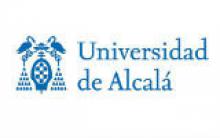Sažeci predavanja dostupni su u nastavku:
Gamification in educational contexts
Gamification is the use of game mechanics and game design in non-game contexts to engage users and motivate action. Although gamification has a great potential in education, there is still little empirical evidence of its effectiveness. In this talk we will present a general overview of motivational software in education as well as our latest research in application of game-like mechanics to educational contexts.
Comparison of Techniques for Dealing with Imbalance Data in Data Mining with Special Focus on Subgroup Discovery Algorithms
Imbalanced data is a common problem in data mining when dealing with classification problems, where samples of a class vastly outnumber other classes. In this situation, many data mining algorithms generate poor models as they try to optimize the overall accuracy and perform badly in classes with very few samples. Software Engineering data in general and defect prediction datasets are not an exception and in this talk, we compare different approaches, namely sampling, cost-sensitive, ensemble and hybrid approaches to the problem of defect prediction with different datasets preprocessed differently. There are differences in the results depending on the characteristics of the dataset and the evaluation metrics, especially if duplicates and inconsistencies are removed as a preprocessing step.
Due to the special characteristics of the defect prediction data (imbalanced, inconsistency, redundancy) not all classification algorithms are capable of dealing with this task conveniently. To deal with these problems, Subgroup Discovery (SD) algorithms can be used to find groups of statistically different data given a property of interest. We propose EDER-SD (Evolutionary Decision Rules for Subgroup Discovery), a SD algorithm based on evolutionary computation that induces rules describing only fault-prone modules. The rules are a well-known model representation that can be easily understood and applied by project managers and quality engineers. Thus, rules can help them to develop software systems that can be justifiably trusted. Contrary to other approaches in SD, our algorithm has the advantage of working with continuous variables as the conditions of the rules are defined using intervals.



